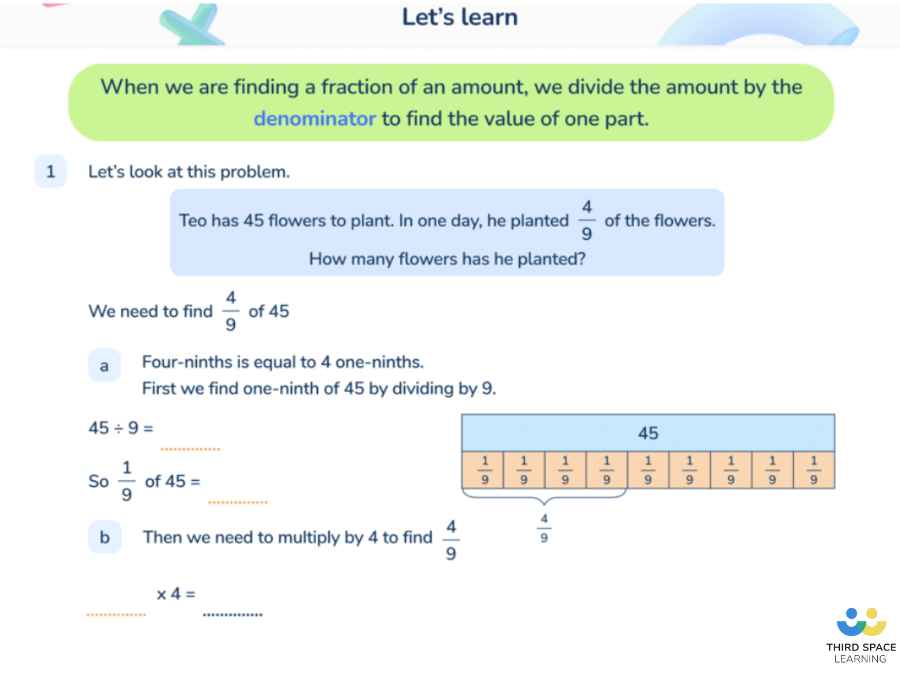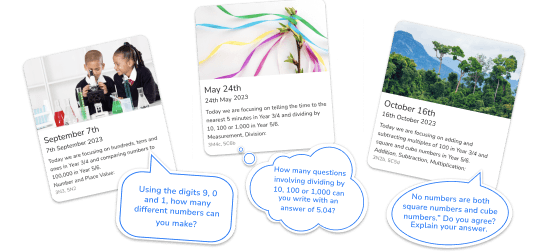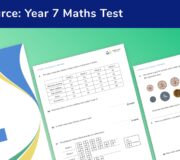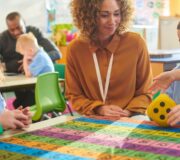KS2 Maths Investigations Based On Real Life In Primary School
It’s been a long week and it is time to hand out your latest ‘exciting’ KS2 maths investigations, carefully crafted problem solving investigations focused specifically on the work you’ve been doing this week.
But then you hear the the immortal words from your Year 6: ” What Does This Have To Do With The Real World?”
Any good teacher knows, of course, exactly how relevant maths is in the real world and how, without maths, modern society as we know it would never have existed.
The problem is, not all 11 year olds know it too – and you’re going to have a hard time convincing some of them.
In defence of 11 year olds, the curriculum – maths in particular – can sometimes feel all too distant from what’s ‘real’.
So the question then becomes, how do we show young learners how Maths intersects and dominates our day to day life?
How do we give our KS2 pupils maths investigations that inspire them, change their perceptions and help them to move beyond a fixed mindset to see maths problem solving as entirely relevant to what may come next in life?
If you’re just interested in maths investigations for Year 5 and Year 6 we’ve created jump to the end of the blog where they’re all listed by term.
KS2 Maths Investigations: Problem solving in context
We believe that one of the answers is putting your maths problem solving activities into a context that your pupils can relate to.
We call this Topical Maths, and we’ve used this idea as the source for several of our most popular Year 5 and Year 6 maths problem solving resources, all offering the kind of KS2 maths investigations we know your pupils will love!
KS2 Topical Maths Problems
25 real world maths investigations to practise reasoning and problem solving based on primary school calendar events
Download Free Now!Benefits Of Maths Investigations At KS2
There are lots of benefits of course, but the most important as far as we’re concerned are these:
- Pupils are required to talk and reason about their maths
- The maths problem solving investigations cement higher order reasoning skills and problem solving
- Starting early with Year 5 maths investigations you can support familiarity with the sorts of questions that come up in Year 6 SATs.
To encourage you to give these KS2 maths investigations a go, we’ll first look at the benefits and principles of introducing them for your reasoning and problem solving at Year 5 and Year 6, we’ll then give you some ideas for how you can create these problem solving activities for the rest of KS2 yourself.
We guarantee you’ll see your pupils’ reasoning and problems solving skills improve!
1. KS2 Maths Investigations Involve Pupils Talking and Reasoning
Getting pupils to verbalise their numerical reasoning has a knock-on effect on pupils’ overall reasoning skills, which is why the core element of our KS2 maths intervention is mathematical reasoning; asking pupils to explain not just what they’re doing, but why they’re doing it.
As a teacher of a large class, it can be difficult to provide the teacher time necessary for each pupil to verbalise to you their reasoning.
The inherently collaborative nature of year 5 and year 6 maths investigations gives pupils the opportunities to to reason out loud and work on their maths problem solving skills.
2. KS2 Maths Investigations Cement Higher Order Reasoning Skills
Our experience teaching thousands of primary school pupils maths every week has shown us that at KS2, even by Year 5 or Year 6, pupils often have good procedural understanding, but struggle with higher order problem solving questions.
The problem solving element to these topical maths investigations naturally improves reasoning skills in Year 5 and Year 6 pupils, as they are more likely on reaching an answer to have to think about not just how but why that answer is correct.
By setting topical maths investigations at KS2 as group-work or a whole class activity, you can ensure that all pupils get to experience this deep level of reasoning.
Many of our topical maths investigations are open ended, but if you’re teaching a fully mixed ability class, we’ve also created some low threshold high ceiling open ended maths investigations specifically for mixed ability classes.
3. KS2 Maths Investigations Give Early Exposure To SATs Style, Reasoning Questions
Most, if not all, schools will provide their pupils with exposure to reasoning via SATs-style questions, but this often comes hand in hand with exams and assessment.
Yet, it is equally important to get pupils reasoning and problem solving in a low stakes classroom setting or as a group.
Creating a learning environment where the types of problem solving questions found in SATs just become part of your lessons will help pupils feel comfortable with exam terminology, and ensures they are more at ease with being asked the same kind of question (say, multiplying and dividing fractions) in lots of different ways.
These maths problem solving investigations and downloadable resources enable you to include these type of SATs style questions in a way which is fun and confidence boosting.
More problem solving and reasoning articles
- Ultimate Guide to Maths Problem Solving Techniques
- Maths Investigations: How To Develop Mathematical Reasoning
- 35 Year 6 Maths Reasoning Questions.
5 Top Tips For Creating Your Own KS2 Maths Investigations
You don’t need to create your own problem solving investigations – the links at the end of this article should provide you with everything you need. However if you do want to have a go these were our principles and, judging by the number of visits. to the date related articles and downloads of these resources we get every year, they’re still very popular.
1. Date-based themes for maths problem solving activities
Nothing solidifies maths in the real world quite like the real world. Nearly, if not everyday of the year holds some significance to someone.
February? Pancake day, Valentines Day, and Fairtrade Fortnight.
March? Red Nose Day, World Book Day, and Holi.
Why not spice your lesson up and throw in some Pancake Day Maths for ratios, or Bonfire Night Maths for measurements. Capitalise on special celebrations throughout the world to excite and enthuse young learners.
For example these Christmas activities always prove popular with KS1 and KS2 or at a different time of year you could try these summer holiday maths investigations or any of these maths activities.
2. Trends and pop-culture KS2 maths investigations
Peers and pop culture hold huge sway over most pupils, and the reason for this is that as growing persons we want to fit in and find friends.
Nothing achieves this more effectively than mutual interest. As a teacher, utilise it – whether this is measuring the speed of explosions in the latest Transformer film, or totalling the high notes in Disney’s Moana – you’ll have pupils hooked in no time.
For the exceptionally savvy teacher, you might want to capitalise on the latest fads and trends within your school. How about measuring amounts via the infamous bottle trick, or examining angles through the lens of the dab?
3. Simple stuff engages pupils with maths problem solving and reasoning
Sometimes when teachers link maths back to real world issues, politics, and the universe at large, it can still feel a little dissonant for the younger pupils.
Don’t be afraid to stick with the simple stuff and the smaller aspects of the world.
Everybody needs to know how much change they’ll have left over after a bus ride home, everyone wants to know exactly how many chocolate bars they can gorge themselves on with two pounds, and everyone wants to know how many times they can go on the log-flume with five tickets.
Keeping it simple can be one of the most effective ways to engage pupils by showing them the mathematics they will employ in every-day life.
4. Cool factor for primary teachers – even in maths
Generally – note this is a generalisation – as a secondary teacher, one can spend eternity being uncool. Luckily primary school teachers get an easier rap, and KS2 pupils are willing to be ‘wowed’. All students can be ‘wowed’ under the right circumstances, but with younger, more malleable minds it can be somewhat easier.
Astronauts, magicians, superheroes, cute animals, cartoons, all carry the power of enthusiasm. They can be your secret weapon for making percentages fun – you’re not halving a number, you’re a magician halving a 167cm person in a special box, etc.
5. Make your maths investigations REALLY relevant
Relevance can be highly underrated when it comes to linking seemingly abstract topics to the real world.
One trick is to instead of distributing your problem solving activity sheets with strangers’ names and unrelatable allegories in the questions, why not make those names and allegories about your class.
Instead of a stranger gathering four apples and eating three, make your pupil.
Instead of apples, why not their favourite snack?
Letting students pick names in questions gives them greater agency in their learning and can be highly engaging.
Better still, putting their names/hobbies/likes/dislikes will not only show them that you know them, and that you care, but it will establish clear links between the work they are doing and the world proper.

Year 5 And Year 6 maths investigations
Here’s our complete list of topical maths investigations for year 5 and year 6.
Autumn Term maths investigations year 6 and year 5
- Autumn maths activities
- Halloween maths activities
- Bonfire Night maths activities
- Christmas maths activities
Spring Term maths investigations year 6 and year 5
- Heart Month Months activities
- Shrove Tuesday Maths activities
- Pancake Day Maths activities
- World Book Day Maths activities
- International Women’s Day Maths activities
- British Science Week Maths activities
- Holi Maths activities
- Easter/Lent Maths activities
Summer term maths investigations year 6 and year 5
- Share-a-Story Month activities
- FA Cup Maths activities
- Walk to School Week activities
- Ramadan Maths activities
- Child Safety Week activities
And if that’s not enough we’ve even got maths activities for Year 5 and Year 6 for events you’re likely to celebrate in primary school but don’t come round every year…
We update these blog posts every year so keep an eye on your calendar, and let us know how you get on @thirdspacetweet.
DO YOU HAVE STUDENTS WHO NEED MORE SUPPORT IN MATHS?
Every week Third Space Learning’s specialist online maths tutors support thousands of students across hundreds of schools with weekly online 1 to 1 maths lessons designed to plug gaps and boost progress.
Since 2013 these personalised one to 1 lessons have helped over 150,000 primary and secondary students become more confident, able mathematicians.
Learn how the programmes are aligned to maths mastery teaching or request a personalised quote for your school to speak to us about your school’s needs and how we can help.



